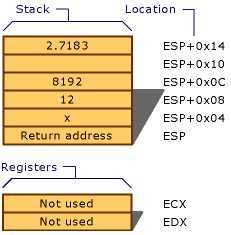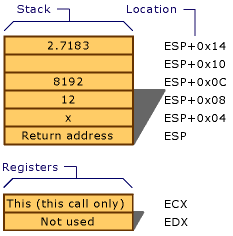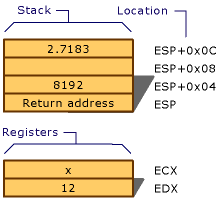Win32 API
- Win32 API - Introduction
- Win32 API - C Run Time Libraries
- Calling Conventions
- Win32 API - DLL
- Win32 API - MFC
- Kernel Objects, Handles, and Synchronization
Win32 API: Calling Convention - 2020
Argument Passing and Naming Conventions supported by Visual C++
A calling convention is a scheme for how functions receive parameters from their caller and how they return a result. The calling conventions can differ in where parameters and return values are placed (in registers; on the call stack; a mix of both), the order they are placed.
Calling conventions describe the interface of called code: - wiki:
- The order in which atomic (scalar) parameters, or individual parts of a complex parameter, are allocated
- How parameters are passed (pushed on the stack, placed in registers, or a mix of both)
- Which registers the callee must preserve for the caller
- How the task of preparing the stack for, and restoring after, a function call is divided between the caller and the callee
| Convention | Stack cleanup | Parameter passing | Mangling Style |
|---|---|---|---|
| __cdecl | Caller | Pushes parameters on the stack, in reverse order (right to left) | _MyFunc |
| __stdcall | Callee | Pushes parameters on the stack, in reverse order (right to left) | @MyFunc@Byte |
| __fastcall | Callee | Stored in registers, then pushed on stack (right to left) | _MyFunc@Byte |
The fillowing pictures shows the result from three calling conventions when we use the following function - msdn
void calltype MyFunc( char c, short s, int i, double f );
...
void MyFunc( char c, short s, int i, double f ){}
...
MyFunc ('x', 12, 8192, 2.7183);
__cdecl : The C decorated function name is "_MyFunc."

__stdcall : The C decorated name (__stdcall) is "_MyFunc@20." The C++ decorated name is proprietary.

__fastcall : The C decorated name (__fastcall) is "@MyFunc@20." The C++ decorated name is proprietary.
